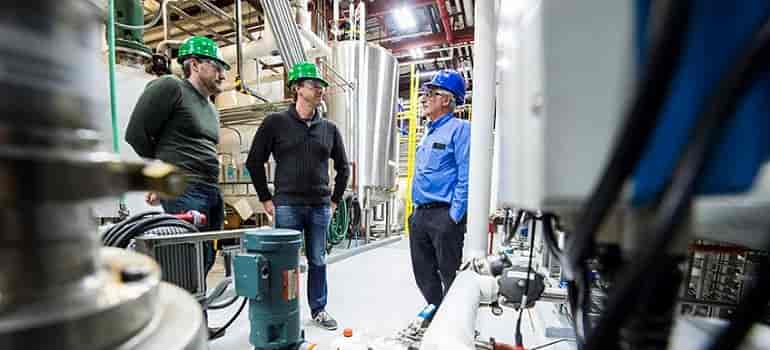
The National Renewable Energy Laboratory (NREL), the Washington Clean Energy Testbeds at the University of Washington, the University of North Carolina at Chapel Hill, and the University of Toledo have formed the U.S. Manufacturing of Advanced Perovskites Consortium (US-MAP), which will work to accelerate commercialization of perovskite technologies.
Perovskite solar cells are a type of thin-film solar cell that have proven to be highly efficient at harnessing sunlight to generate electricity. Perovskites have shown tremendous promise in a range of other technologies, including solid-state lighting, advanced radiation detection, dynamic sensing and actuation, photo-catalysis, and quantum information science. Early investments by the U.S. Department of Energy’s Solar Energy Technologies Office and its Office of Science into perovskite research have enabled the United States to engage at the forefront of many of these technology areas and fostered a vibrant community of domestic industrial leaders.
“Perovskites have the potential to become a game-changer for solar and many other fields,” said Martin Keller, director of NREL. “By combining our research efforts, this new consortium will bring this technology to market sooner than if we were all operating alone.”
While perovskite cells have shown promise in the lab, more work remains to be done to ensure that the technology is ready for commercial success. Manufacturing, durability, and sustainability remain challenges and will be the consortium’s research focus. Members of US-MAP will share research and development, validation, and pilot manufacturing, which will reduce development costs and technology risks for potential investors.
US-MAP has six major U.S.-based industry players as founding members: BlueDot Photonics, Energy Materials Corporation, First Solar, Hunt Perovskites Technologies, Swift Solar, and Tandem PV. Representatives from each of these companies, as well as new U.S. startups and other established companies, will form an industry advisory board that will inform and guide the efforts performed at the research institutions. The founding organizers (NREL, Washington Clean Energy Testbeds, UNC-Chapel Hill, and the University of Toledo) will form the executive board that will oversee delivery on projects.
The organizers and members of US-MAP have already begun expanding this network to include the University of Colorado at Boulder and the SLAC National Accelerator Laboratory.
The founding organizers of the US-MAP consortium will explore funding from a variety of sources including industrial members and the federal government. Leadership of the consortium will be provided at NREL by Joseph J. Berry and Jao van de Lagemaat, who will work with the key points of contact of the other founding organizers and industrial advisory board.
“Forming this collective will enable innovation in the U.S. that will strengthen our position in these important materials and associated technologies,” said Berry, the consortium director, senior scientist, and perovskite team lead for NREL.

